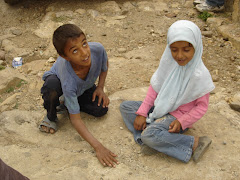Excitement over Barak Obama's presidency is almost a foregone conclusion in the Arab World. Naturally, a candidate that has expressed a desire to reach out to the Syrian and Iranian regimes, after the disastrous isolation pursued by the Bush Administration, would elicit approval and hope among Arab citizens. The excitement of a highly-contested election is also predictable, since most elections in the Arab world are pre-determined by a complex network of bureaucratic and legal maneuvers that ensure the continuation of incumbent regimes. The highly criticized constitutional amendments in Egypt in 2007 were just such an example of a ruling party orchestrating election laws to ensure their own success in future contests. Add this to the notorious examples of elections with 99% approval ratings for the ruling parties in other Arab states, and the possibility of an unknowable election in a country whose policies impact the region perhaps more than their own domestic elections is predictable.
However, after decades of being disappointed by promises of engagement and holding despots to account, many of the region’s citizens are rightly disillusioned with any candidate for the US presidency. One of the dominant narratives in the region regarding Senator Barak Obama’s presidency is that his connections with Islam (his father is a Muslim) and the color of his skin will drive him to ‘prove’ himself – that is, to be even more zealous in his pursuit of the US national interest than McCain would have been. Because he is black – and he has ancestral ties to the Muslim religion, he will have to demonstrate to the American public that he is as “American” – that is, as white and as Christian – as they are. This was visible in the early Summer and Fall months of the campaign, as Obama was forced to reiterate his Christian faith in the face of comments made by his former preacher that blamed US foreign policy for the September 11th attacks. The famous statement about the “chickens coming home to roost” played right into fears about Obama’s belief in the superiority of the American cause. Arab citizens here closely followed the campaign – and didn’t miss the potential ramifications of attacks like these - most visible in Obama’s rhetoric toward Israel – a painful reminder to Arabs that the prospects for peace are constrained by the necessity of the US maintaining close ties with the Jewish state. Any time to argue that Obama will ‘moderate’ his views on the Palestinian issue now that he has secured the presidency are met with the example of Jimmy Carter – who has been incredibly vocal on behalf of Palestinian rights . . . . now that he’s no longer president .
Other Arabs I have spoke with (particularly older individuals) fear that Obama is too inexperienced, although it is difficult to say whether they truly believe this is the case or are merely reiterating what seems like a cogent qualification that other critics have leveled against Obama. The old adage that “All these people, ie: Arabs, understand is force” – is sadly reinforced by observations like these. Despite all our railing against Arab regimes that pursue stability over democracy and civil rights, there is a surprising number of Arab citizens that echo the preference for security over liberty. Obama simultaneously represents both: the potential to engage with Arab regimes and push for meaningful reforms but also the possibility of acting as a destabilizing force whose naïve belief in the goodness of humanity could be worse than Bush’s maniacal pursuit of a “New Middle East.”
Wednesday, November 5, 2008
Subscribe to:
Post Comments (Atom)

No comments:
Post a Comment